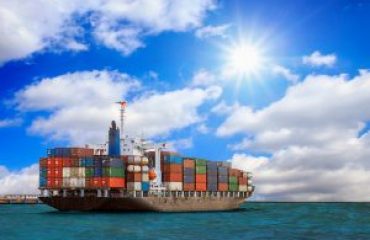In 2022 and 2023, international trade in goods was expected to grow faster than in the past ten years. We realized an above-average positive development in in Africa and other Parts of the world. However, the recent crises in the world such as the Covid-19 pandemic and the Ukrainian war have shaken the world greatly. Such crises mean a lot to world trade since they have come with stranded business deals, ever hiking fuel prices across the world, to mention but a few.
What is the future of trade and freight forwarding in Africa?
With African countries directing their efforts towards improving agriculture and industrialization, the future of trade in Africa looks to be greener than in the past years. But with the global economy increasingly shaped by geopolitical and climate imperatives, how can the continent best advance its development goals? This implies that the world trade Organization is at a point where it needs to take a closer look in the current economic trends and answer the questions that deal with global economies, evaluate their current status and their future prospects in what can be termed as vision 2040. To do so will require looking beyond the traditional mandate of the World Trade Organization to drive trade liberalization as the highest priority. While discussion has increased around climate, consensus even on first steps like reducing tariff barriers for green products–has remained elusive.
A few years ago, African countries concluded, adopted, and ratified the African Continental Free Trade Agreement (AfCFTA). AfCFTA represents a remarkable achievement in that it seeks to make trade policy a key tool for economic transformation in the continent and shows impressive diplomatic coordination and political cooperation across the continent. With such movements, what effect does it have on the Freight and forwarding industry across Africa and the whole World? It means that there will be high traffic in transportation of goods across borders and seas. This will be as a result of mass production of goods especially agricultural products.
What is the future of World trade in Regards to Covid-19 and the Ukrainian war?
According to the DHL World Trade Atlas Research across many countries indicates that much as the world has been hit but such crises that is the Ukrainian war and Covid-19 pandemic, things are not the way we expected them to be when it comes to world trade. Things seems to be the direct opposite due to increase in E-commerce and other many additional factors. The post Covid-19 world trade predictions have been defied in one way or the other. This is what the DHL World Trade Atlas has got to say, “Each economic crisis seems to cause people to question the resilience of globalization and trade. Covid-19 and the war in Ukraine have triggered renewed uncertainty. But the data tells a different story. The Atlas shows us that trade in goods has surged to as high as 10% above pre-pandemic levels. And it highlights the power of commerce to accelerate growth, lower prices, and diversify sources of critical imports. With inflation at multi-decade highs and economies slowing down, global trade is now more crucial than ever.
Analysts have downgraded trade growth forecasts in the wake of the war in Ukraine, but the most recent projections call for trade to grow slightly faster in 2022 and 2023 than over the preceding decade. They also expect it to modestly outpace GDP growth, which underscores the role of international trade in the world economy. In addition, the robust cross-border ecommerce growth we have seen in recent years should continue, which means more players will gain access to international markets.”
What is the impact of globalization on Word trade?
As the world continues to become a global village due to advancement in technology, trends in world trade continue to shift as well. For instance back in the days, trade was had to be done while the seller and the buyer are in physical contact. The distance had to be close. Unlike these days when social media platforms such as Facebook, twitter, Instagram, LinkedIn, WhatsApp, Skype, to mention but a few have made trade easier and easier. The world has come closer meaning trade can be done in a blink of an eye. This implies that trans-border trade will continue to advance in both developed and developing countries in the coming years. Recent statistics indicate that in the past years trade in Sub-Saharan countries has grown at a faster rate than the previous years.
What does this mean to Freight and forwarding Industry?
Globalization which has increased trans-border trade is a call for Freight and forwarding companies to tighten their belts. This is because as the people draw near to each other, a lot of business transactions happen and this includes freight goods. The challenge is that there is likely to be an increased demand on the side of freight companies which may require a lot of speed and flexibility in the day to day operations of the business. Being a sensitive industry, Freight and forwarding companies may need to revise their strategies, ways of doing work, methods of transportation and improve on customer / public relations. This is because in such a business atmosphere there are limited or no room for errors at all. Any mistake you make, you are will be singing songs of “Had I known.”
CONCLUSION
In conclusion, therefore Love Uganda Logistics (LUL) continues to emphasize that Freight and forwarding industry has a duty to look beyond trade and evaluate the emerging economies as they continue to race forward, especially in connectivity and innovation. There is need to realize that countries are becoming increasingly successful in exporting of sophisticated capital, intermediate, and consumer goods. These countries have also significantly increased on the rate at which they import raw materials. The present power of globalization, innovation and technological advancement is changing trade of goods from just quantity into quality goods meaning that Freight and forwarding companies have got to be more sensitive in their day to day operations in order to ensure smooth running of the business.







